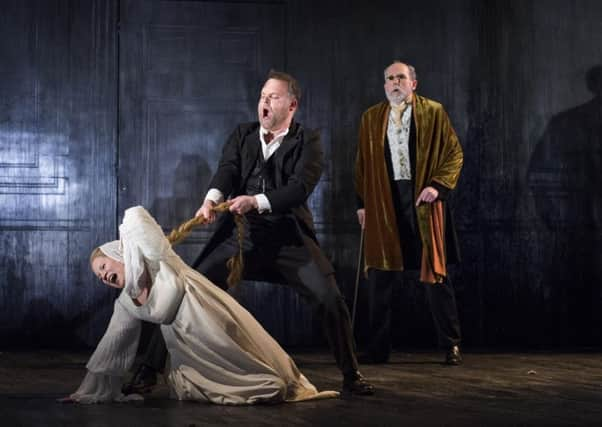Opera review: Scottish Opera - Pelléas & Mélisande


Scottish Opera: Pelléas & Mélisande ****
Theatre Royal, Glasgow
However, it is Debussy’s restless score, brilliantly realised by conductor Stuart Stratford and the orchestra in the pit, which drives the story. Swirls of luxuriant string and woodwind textures punctuate and pre-figure the episodic scenes as the musical undercurrent eventually overwhelms the characters, sweeping them to their fate.
Debussy’s ravishing impressionism boldly embraces the symbolism of Maeterlinck’s enigmatic tale. Mélisande – a vocally and dramatically triumphant Carolyn Sampson – is rescued from the forest by Golaud (Roland Wood in a finely nuanced performance) who she marries. However, it is Golaud’s brother, the dreamy, poetic Pelléas (the mellow-voiced baritone Andrei Bondarenko) who captures her heart. Love triangles rarely end well, as hinted at by the partially blind grandfather King Arkel – magnificently sung and portrayed by Alastair Miles. There’s also solid support from Anne Mason as Genèvieve, the mother of the brothers, and a spirited effort by Cedric Amamoo as Yniold, Golaud’s son from his first marriage.
This opera may pose more questions than answers, especially surrounding Mélisande’s past, but it makes for an enthralling experience.